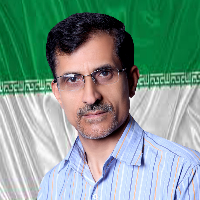Correlation between Couples' Mutuality Afflicted to Conflict with Marital Satisfaction and the Mediating Role of Life Quality
Author(s):
Article Type:
Research/Original Article (دارای رتبه معتبر)
Abstract:
Introduction
Satisfaction with marital life is one of the most important concepts related to marital life of couples and is influenced by many factors. The purpose of this study was to determine the correlation between couples' mutuality afflicted to conflict with marital satisfaction and the mediating role of life quality.
Methods
The research method was descriptive-correlational. The statistical population consisted of all conflicting couples referring to counseling centers in Bandar Abbas in 2017. From the statistical population, 380 couples (760 men and women) were selected using convenience sampling method.The instrument of measurement was the three “Iranian Couples Intellectual Mutuality and Coordination Questionnaire”, “World Health Organization Quality of Life Questionnaire”, “Kansas Marital Satisfaction Scale”. Validity and reliability of instruments have been confirmed in previous studies. The data were analyzed by statistical tests and structural equation modeling approach using SPSS.23 and AMOSS version 20.
Results
In the structural equation model, the relationships between the variables were acceptable and all the research hypotheses were approved. The correlation between the level of mutuality with quality of life (β = 0.41, P = 0.005), correlation between marital satisfaction (P = 0.54, P = 0.004) and correlation between quality of life and marital satisfaction (β = 0.34, P = 0.002).
Conclusions
The level of mutuality of conflicting couples is directly and indirectly correlated with quality of life with marital satisfaction. Therefore, it is suggested that before marriage, training is needed for intellectual similarities for couples.Keywords:
Language:
Persian
Published:
Journal of Health Promotion Management, Volume:7 Issue: 5, 2018
Pages:
55 to 62
https://magiran.com/p1910430
مقالات دیگری از این نویسنده (گان)
-
Adolescent Self-harm Behavior Based on Depression, Family Emotional Climate, School Identity, and Academic Performance
*, Beheshteh Ahmaditeifakani, Abdolvahab Samavi
Journal of Research and Health, May-Jun 2024 -
The Effect of Cooperative Learning on School Connection and Academic Engagement among Students
*
International Journal of Psychology, Winter-Spring 2022


